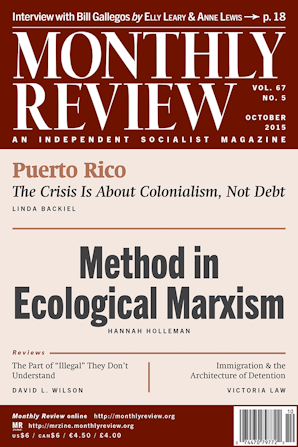Also in this issue
- Method in Ecological Marxism: Science and the Struggle for Change
- Puerto Rico: The Crisis Is About Colonialism, Not Debt
- Sic Vos Non Vobis (For You, But Not Yours): The Struggle for Public Water in Italy
- Stripping Away Invisibility: Exploring the Architecture of Detention
- The Part of "Illegal" They Don't Understand

